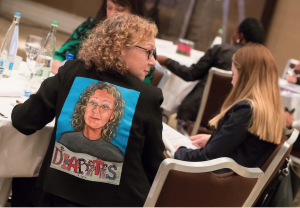Doctors now unionize like factory workers. Care only gets more compressed and standardized.

“Why Doctors and Pharmacists Are in Revolt” appeared in yesterday’s New York Times written by Noam Scheiber. If you subscribe to the Times, read it. If not, I’ve pulled out a few highlights below, but I cannot do it justice because the piece is long and multi-layered.
The overall message, as you can imagine, is due to recent mergers of chain drugstores and clinics, the exodus of health professionals during and post covid, the focus of profit over care, managers who are business executives, not medical professionals, care is becoming ever more bled out of the system and the system is ever more standardized.
Health professionals are increasingly overworked and have less access to resources and staff. Those at the top are seen, and treated, as efficiency managers. Those under them, cogs in a wheel. As a result, patients get less time with their docs and pharmacists, less personal attention, health providers who are exhausted, and increasingly are recipients of policies that are profit, rather than care, based.
I know this is not a new story. If you follow our industrialized medical system and the plight of health professionals, as I do, you’ve been reading about this over the past several years. Somehow, however, this article really struck a nerve. Perhaps it’s the fact that health professionals now feel the need to unionize – no longer given the respect of their years of education and training, they are seen as ‘Human Resources.’ That title invented by management in business years ago. The irony of people being resources, while you’re trying to say that you respect people, is thick.
Dr. John Wust, an obstetrician-gynecologist featured in the article talks of how little input doctors are given regarding the practices designed for and around them by health corporations. Once he could have never dreamed of being in a union but now he feels it’s his only recourse.
Both CVS and Walgreens say they have made significant investments in their workers’ staffing needs. But as Scheiber writes, “A longer-term consolidation of health care companies has left workers feeling powerless in big bureaucracies. They say the trend has left them with little room to exercise their professional judgment.” Professionals feel micromanaged and everything has become about the metrics.
Pharmacists described being held to measures as to how quickly they answer the phone and how many scripts they fill for 90 over 30 and 60 day prescriptions as the 90 day fills mean more profit. One cited pharmacist gave up his position as district manager to become a frontline pharmacist again. He couldn’t inflict on others what he saw as unconscionable, including weekly calls when a budget for tech hours exceeded by 10, nothing much, but a warning call its required.
I will close with this quote, “Corporate tells you how to manage your patient,” said Dr. Frances Quee, president of the Doctors Council, which represents about 3,000 doctors, most of them at public hospitals. “You know that’s not how you’re supposed to manage your patient, but you can’t say anything because you’re scared you’re going to be fired.”
What world have we created? Why is money almost always more important than how we treat each other, the planet, the other species that live here?
I have no answers. I just wish more people were asking and asking more fervently. I think at some point this movement by health professionals will cause a change I hope so because it frankly scares me to see so blatantly, so openly and so glaringly the profitization of healthcare, the thing we will all be relying on more and more as we age.








